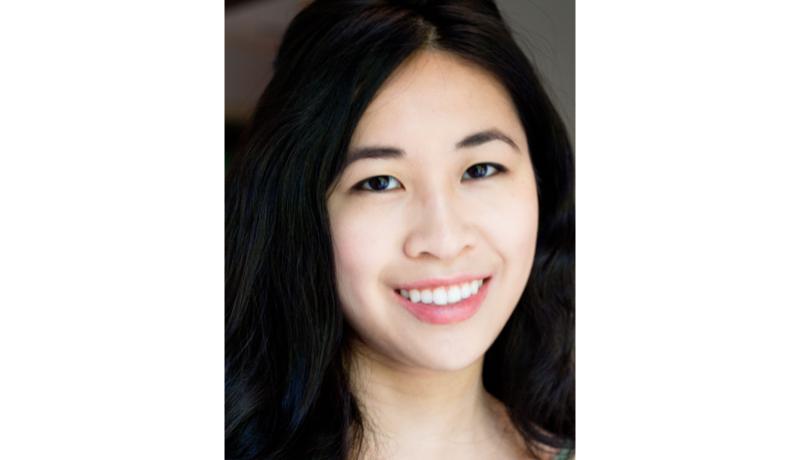Wendy Chen Moves Passionately Through Writing and Teaching

Wendy Chen’s work has always been deeply personal.
Her parents, who immigrated to the United States from China, encouraged a young Wendy to study poetry and writing. She remembers her understanding and love of language being bolstered by her bilingual upbringing.
“I grew up interested in language and thinking about the ways that we move between languages, and how words have this very transformative life of their own in our daily lives,” Chen says.
And now, her dissertation as a Ph.D. candidate in the University of Denver’s department of English, titled “Understudy,” draws on the grief she’s experiencing related to her father’s dementia.
“Writing has always been a way for me to work through intense emotions and experiences that are sort of hard to make sense of,” Chen reflects.
The heart of the dissertation is an epic poem, titled “Moly.”
“It comes from the name of this mythical flower in ‘The Odyssey,’ and it riffs off of the imagery and the journey of ‘The Odyssey,’ in thinking through grief, with my father's dementia,” she says.
A central part of Chen’s process in writing her dissertation is the incorporation of dream logic, which Chen defines as the idea of how dreams can inform one’s writing. Her understanding of the tactic came from DU professor Patrick Cottrell, who teaches a class on the subject.
“We kept a dream journal, and we learned how to lucid dream,” she remembers. Cottrell’s teachings and guidance, Chen says, truly helped to shape her dissertation.
“There can be something very meaningful about dream logic and how that could be more truthful to grief and the grieving process, when rationality and waking life and facts don't really help us to make sense of what has happened—if something has ended, like an illness or a death,” she says.
There’s a roster of other DU English professors who Chen says have helped influence her writings. In particular, she mentions Selah Saterstrom, who teaches Divinatory Poetics and “has such a compelling perspective on the tarot, divination, poetry and life.”
And Chen recalls the “wonderful, discerning editorial eye” of her dissertation director, Graham Foust, who assisted her during negotiations for her post-grad position.
Though she is about to finish her final academic pursuit, Chen isn’t at all new to the world of publishing; she’s already an author several times over.
In elementary school, Chen wrote poems that her teachers would laminate and bind into books—the first of several books of poetry that she would eventually go on to produce.
Chen’s first book of poems, “Unearthings,” was published in 2018. Like much of her work, the collection draws on her personal experiences. She writes that “the collection’s narratives of isolation, exile, and immigration explore what it means to be an Asian American woman.”
And Chen has two forthcoming volumes: a novel, “Their Divine Fires,” publishing in 2024; and a book of translations of Chinese poetry, titled “The Magpie at Night: Complete Translations of Li Qingzhao’s Poetry,” which will be out in 2025.
The next leg of Chen’s professional journey will see her take on a tenure-track English professorship at the University of Nevada-Las Vegas in the fall.
She says the opportunities for teaching she had at DU helped to build her confidence as an educator, crediting the department’s professors with guiding her through the teaching process.
“I think having the opportunity to teach, to lead classes on my own and be the instructor on record has been really valuable for me to really, firmly know that this is what I want to do, and this is where I want to go.
“I think, in order to learn how to be a teacher, you do have to teach and have that experience, right?” she says. “You can talk about it all you want, like, ‘This is how we might run a class,’ but you never really can replicate what it's like, being in front of the classroom and having all these different perspectives come at you. And figuring out how to navigate that can be very hard to impart without that experience. So having that experience, having the mentorship of the department, I think that's been very invaluable.”


